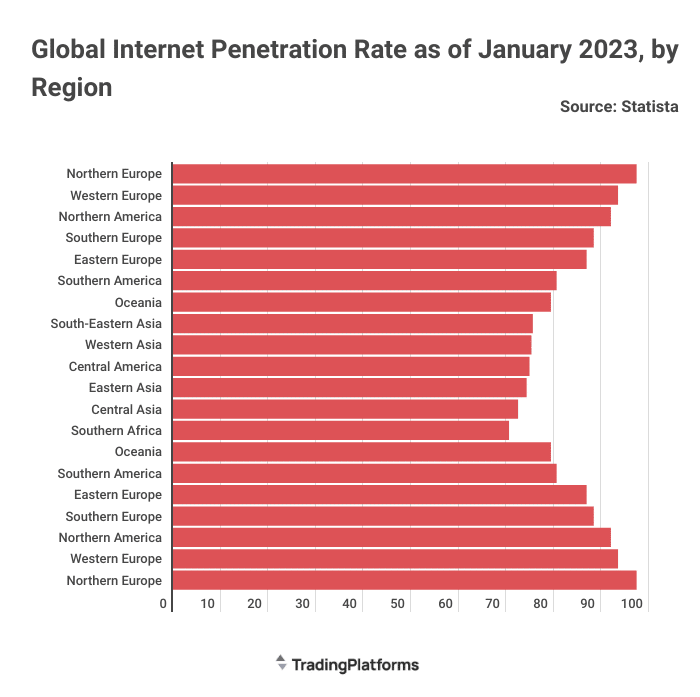Unprecedented global access to the internet has enabled people around the world to remain connected, learn new skills, and discover opportunities. According to TradingPlatforms.com, Europe has been leading the way in terms of internet penetration rates with Northern Europe coming out on top with 97 percent of its population using the internet. Western Europe followed closely behind with 93.5 percent.
The rest of the world is not far behind in terms of internet usage and the global average penetration rate was recorded at 64.4 percent in January 2023. The development of telecommunication networks and infrastructure has been a major contributor to the rise in global internet users.
Tradings Platform’s financial analyst commented on the data saying, “The internet is now an indispensable tool for daily living and the impact of it is felt around the world. We can expect to see more countries continue to make efforts to increase their penetration rate in the near future.”
Traffic from Mobile Devices Changing the Internet Landscape
The prevalence of mobile devices has also contributed significantly to increased internet usage worldwide. Mobile internet users account for more than half of all internet users and this figure is only projected to rise over the coming years. Furthermore, the advent of 5G technology has also been instrumental in boosting global internet penetration rates in developing countries.
Google’s Chrome continues to maintain its stronghold as the most popular web browser, accounting for 38.95 percent of the global market share. Firefox and Internet Explorer have seen a dramatic drop in market share due to the surge of Chrome’s prominence, as well as the influx of fresh participants joining the web browser industry.
Expansion of Possibilities
The high internet penetration rates in Europe have opened up new opportunities for businesses and individuals alike. E-commerce has taken off, with online sales accounting for a significant proportion of total retail sales in many countries. The rise of remote work has also been a significant benefit of high internet penetration rates, with many individuals opting to work from home, giving rise to the digital nomad culture.
The dominance of Europe in internet penetration rates can be attributed to a combination of factors, including digital infrastructure, digital literacy, and favorable government policies. The European Union has played a significant role in promoting the digital economy, with the introduction of the Digital Single Market (DSM) strategy. The DSM aims to promote the growth of the digital economy, including the development of e-commerce, data protection, and cybersecurity among others.


Question & Answers (0)